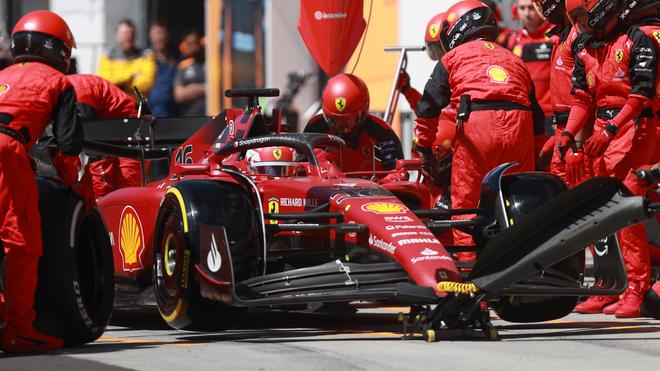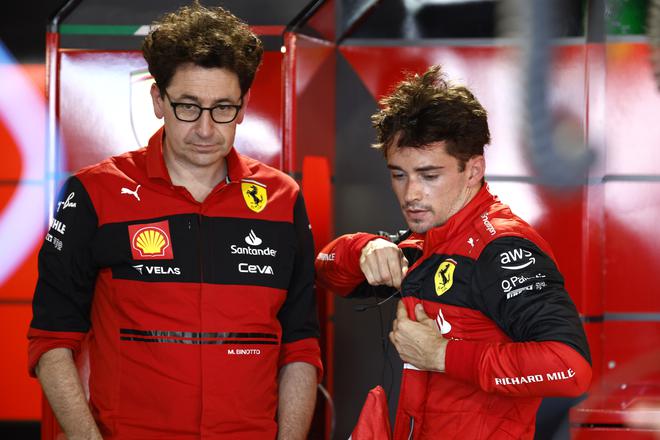

In the sporting world, some teams have an outsized influence on the disciplines they compete in — the sport’s fortunes are intrinsically linked to the team’s.
In Formula One, that team is Ferrari. No name evokes more wonder and amazement. The iconic brand was born for motor racing; the luxury car business was started by its founder Enzo Ferrari to fund racing endeavours.
It is the only team that has competed in every season of F1 since the start of the championship in 1950. It is also the most decorated team in terms of titles and wins, apart from being the most followed marque in the world.
Ferrari’s importance to F1
A sense of Ferrari’s importance to F1 can be had from the fact that it receives bonus prize-money from the commercial rights holder just for turning up every year, to ensure its uninterrupted presence since the championship’s start.
Ferrari also has the power of veto over regulations and in the past has threatened to use this against rules that could harm its interests.
But despite these advantages, Ferrari has had an underwhelming time over the last 15 years. It last won a constructors’ title in 2008 and a driver’s title in 2007.
The historical weight of the team’s image and its significance to Italy’s national psyche have often come in the way of on-track success. The negative effects of the team’s fear of failure and internal politics have been widely chronicled.
Except during the Jean Todt-Ross Brawn-Michael Schumacher era from 2000 to 2004, when it steamrolled the opposition, the team has underachieved in recent times.
With the overhaul of regulations in 2022, there was expectation that Ferrari, with the might of its resources, would nail the challenge and get back to winning ways.
Pre-season testing showed that the team had one of the fastest cars on the grid and when Charles Leclerc won the first race in Bahrain, the belief was further solidified.
Leclerc finished a close second in Saudi Arabia before winning again in Australia. With two wins from three races, there was a renewed sense of optimism that the team could challenge for the title.
Welcome relief
It was a welcome relief for the Tifosi, considering how bad things were, following a rule clarification in 2019 that hurt the team.
The FIA issued a technical directive on power units in 2019 after the Ferrari engine had become the most powerful on the grid. Rivals believed the team was getting around the regulations by a clever trick that was possibly illegal, forcing the FIA to issue a clarification on the interpretation of rules.
The FIA even investigated Ferrari’s engines but could not prove any wrongdoing although both parties later agreed to a private settlement ahead of the 2020 season.
However, following the directive, the Ferrari engines went from the fastest to the slowest in the speed trap.
To illustrate how bad 2020 was, the team only managed to finish sixth in the constructors’ standings. It was third in 2021.
In this context, the two early wins this year showed a lot of promise. However, the team has slipped since then, a mixture of reliability woes and strategic errors contributing to the downturn.
It took another six races before Ferrari won its third race — Carlos Sainz’s maiden triumph at the British Grand Prix last weekend.
During the intervening period, that team lost a lot of ground to rivals Red Bull and Max Verstappen.
Even Sainz’s victory, while a welcome return to the top step for Ferrari, was not the ideal result in the pursuit of the drivers’ championship — the team’s primary title challenger Leclerc suffered a huge blow.
After the Australian GP, Leclerc had a 46-point lead over Verstappen. But after the British GP, Leclerc finds himself 43 points behind the defending champion and even nine points behind Sergio Perez.
Strategic blunders
Apart from reliability woes in Spain and Azerbaijan, where Leclerc had to retire from the lead, allowing Verstappen to win on both occasions, the Monegasque driver has also been hurt by the team’s strategic blunders.
The most painful of the blunders came at Leclerc’s home race in Monaco where he qualified on pole and was leading the race before two costly decisions by the pit wall for his stops saw him drop from first to fourth.
The race started after a downpour, with all drivers starting on wet-weather tyres. As the track started drying, some drivers switched to intermediates while others, such as Sainz, went directly to dry-weather slicks.
Red Bull moved first, getting its drivers to stop for inters and by the time Ferrari decided to bring Leclerc in, he had lost sufficient time for Perez to undercut him.
Sainz, who later stopped for dry tyres, had a slow in-lap on old wet tyres, and the team misjudged matters by asking Leclerc, who was quick on his inters, to stop on the same lap. This effectively ceded track position to the Spaniard who had started behind.
But to make it worse, the time lost by Leclerc, stacked behind Sainz in the pit stops, allowed Verstappen to stop a lap later and take third place from the local boy.
In Silverstone, Sainz, who started from pole position, never had the pace that Leclerc had despite the latter suffering some front wing damage. Leclerc was complaining on the team radio about how fast he could go if he were allowed to take the lead instead of following the slower Sainz. This enabled Lewis Hamilton to catch up, bringing him into play as well.
After the first stops, the same situation prevailed until Sainz failed to meet the target lap time set by the team and let Leclerc take the lead. However, a late safety car meant the team had less than 10 seconds to decide on whom to pit and preferred to leave Leclerc out on old tyres while stopping Sainz, who was a few seconds behind, for new soft tyres that were quicker.
Ferrari feared that Hamilton, who had stopped later than Leclerc, would stay out to take the lead and preferred to prioritise track position for Leclerc. The young driver made his displeasure known that it was going to be tough for him to keep the two drivers on fresher tyres behind him at the restart.
Despite the team asking Sainz to fall behind and act as a cushion for Leclerc, the Spaniard, fearing pressure from Hamilton, immediately took the lead from his teammate using his tyre advantage.
Leclerc once again saw victory slip from his hands and had to settle for another fourth place on a day when his rival Verstappen managed only seventh.
Had Ferrari asked Sainz to give way before the first round of stops, Leclerc could have been further up the road during the safety car period which would have allowed him to stop for new tyres without worrying about losing track position to Hamilton.
These two results, at Monaco and Silverstone, cost Leclerc 26 points; he would otherwise have been only 17 points behind Verstappen.
Not only has Ferrari cost Leclerc points, forcing him to potentially take more risks to make up the deficit, but it’s also likely to have diminished his confidence in his team. Leclerc was heard on the radio after Silverstone, bemoaning the loss of time during the race. Later the world saw images of team boss Mattia Binotto and his driver exchanging words, with the former wagging his finger. Although both parties played down the incident, it was hardly an image of harmony.
On the other side of the garage, in Australia, the team’s poor preparation affected Sainz, who went out on cold tyres for his final run in qualifying and managed only ninth. On Sunday, the team once again had an issue with his steering and the last-minute change meant he had a poor start and, while trying to force his way back up the grid, made a needless mistake and lost valuable points.
Indecision in crucial moments
The baffling thing about Ferrari’s tactics has been the indecision in crucial moments when employing team orders or making calls under pressure.
This was a team that used to be ruthless during the Schumacher era when enforcing team orders. Even more recently, Felipe Massa was forced to give up a win in Germany in 2010 to help title contender Fernando Alonso.
In contrast, Red Bull has been clear-headed in prioritising Verstappen, as it did in the Spanish GP despite Perez being ahead, albeit on a different strategy.
Even though Red Bull is the faster car on race days, certain tracks allow Ferrari to fight for wins and on those, the team needs to maximise its chances.
Instead, it has been dropping the ball on such weekends and finds itself in deep trouble. The wait for a title is set to continue for another year unless it can drastically sharpen its race operations for the remaining 12 rounds.







